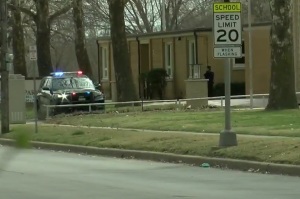Supreme Court to determine if religious schools can qualify for Montana tax credit

The United States Supreme Court has agreed to hear an appeal in a case centered on whether religious schools in Montana can be eligible for a state tax credit on scholarships.
In an order released last Friday, the Supreme Court granted a petition in the case of Espinoza v. Montana Department of Revenue.
John Bursch of the Alliance Defending Freedom, which filed an amicus brief in the case, said in comments emailed to The Christian Post on Monday that he was “encouraged that the Supreme Court is interested in the case.”
“At a minimum, the Court appears ready to say that religious schools cannot be discriminated against in a state tax-credit program,” Bursch explained.
“We’re hopeful that the Court says that all state actions discriminating against religious schools are unconstitutional.”
Bursch drew a parallel to the 2017 Supreme Court decision Trinity Lutheran Church v. Comer, in which the high court ruled 7-2 that a Missouri-based church could not be barred from a state-sponsored playground repair program solely because they were religious.
“No government should treat people worse just because they are religious. Espinoza is one of those cases. Montana is singling out religious schools and refusing to treat them equally with non-religious schools,” added Burch.
“For now, students and parents are being barred from opportunities meant for everyone just because they chose a religious school. That’s not only unfair, it’s illegal.”
In 2015, Montana passed Senate Bill 410, which allowed tax credits for donations of up to $150 to either private school scholarships or educational programs in public schools.
Initially the state did not allow religious schools to participate in the program, citing Article X, Section 6 of Montana’s constitution.
“The legislature, counties, cities, towns, school districts, and public corporations shall not make any direct or indirect appropriation or payment from any public fund or monies, or any grant of lands or other property for any sectarian purpose or to aid any church, school, academy, seminary, college, university, or other literary or scientific institution, controlled in whole or in part by any church, sect, or denomination,” reads part one of the section.
In response to the ban, a group of parents whose children attended religious schools filed a lawsuit and in 2016 a judge issued a preliminary injunction, allowing students at religious schools to receive the scholarships.
Last December, the lower court decision was overturned by the state supreme court, with Justice Laurie McKinnon authoring the majority opinion.
Calling the Tax Credit Program "facially unconstitutional," Justice McKinnon wrote that the state constitution “broadly prohibits any type of direct or indirect aid” to religious entities.
“We conclude that Montana’s Constitution more broadly prohibits ‘any’ state aid to sectarian schools and draws a ‘more stringent line than that drawn’ by its federal counterpart,” wrote McKinnon last year.
“The Legislature, by enacting the Tax Credit Program, involved itself in donations to religiously-affiliated private schools … The Legislature, by enacting a statute that provides a dollar-for-dollar credit against taxes owed to the state, is the entity providing aid to sectarian schools via tax credits in violation of Article X, Section 6.”





























